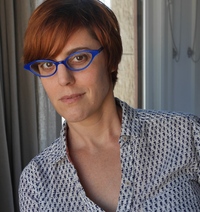Michal Lemberger
Goodreads Author
Born
New York, The United States
Website
Twitter
Genre
Member Since
February 2012
To ask
Michal Lemberger
questions,
please sign up.
Popular Answered Questions

|
After Abel and Other Stories
by
—
published
2015
—
3 editions
|
|
* Note: these are all the books on Goodreads for this author. To add more, click here.
Topics Mentioning This Author
| topics | posts | views | last activity | |
|---|---|---|---|---|
| Jewish Book Club: Related Book Clubs | 106 | 188 | Aug 24, 2023 06:40PM |
 Jewish Historical Fiction
— 752 members
— last activity Sep 16, 2025 06:01AM
Jewish Historical Fiction
— 752 members
— last activity Sep 16, 2025 06:01AM
For those that love Jewish historical fiction representating as many cultures, countries, and time periods as we can find.
 BookPod's Good Reads
— 32 members
— last activity Dec 03, 2015 10:15AM
BookPod's Good Reads
— 32 members
— last activity Dec 03, 2015 10:15AM
Who better to get book recommendations from than other writers?! This goodreads group is so that the entire BookPod family can share their current r ...more


























